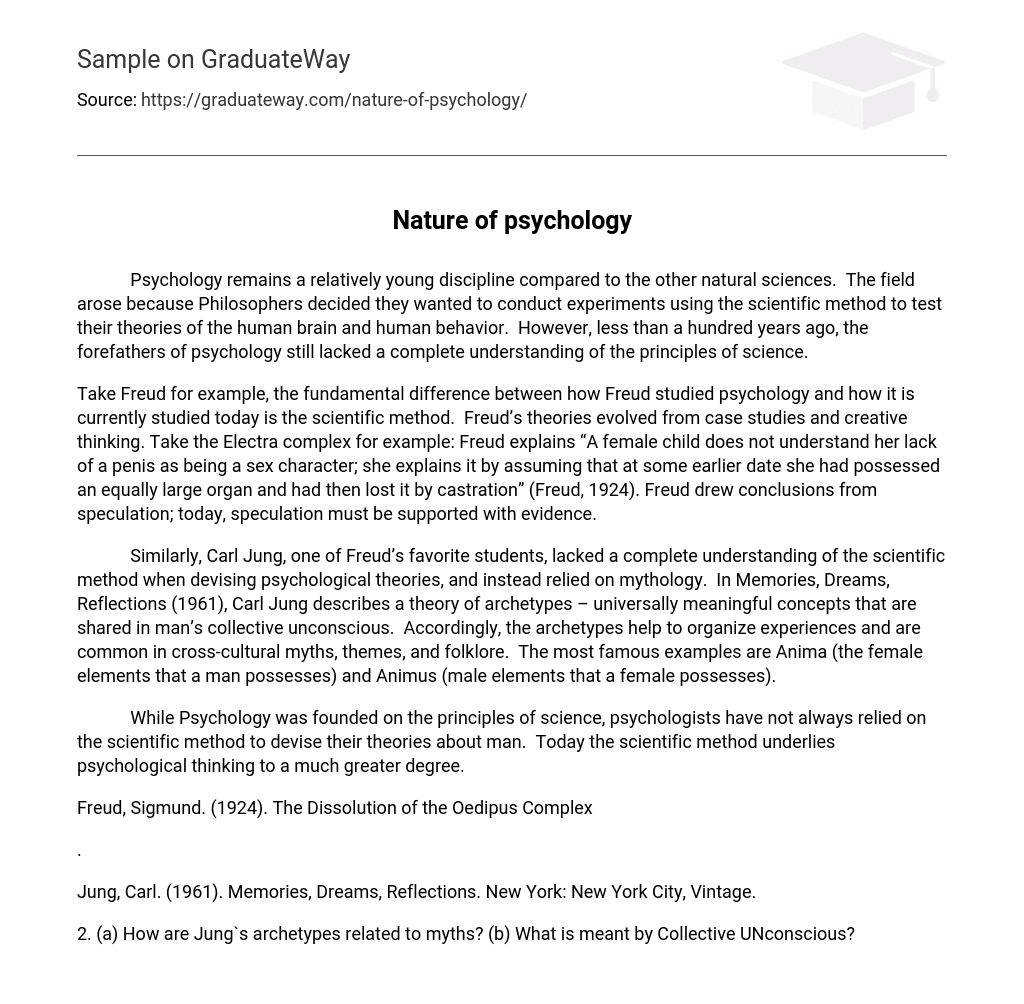Psychology remains a relatively young discipline compared to the other natural sciences. The field arose because Philosophers decided they wanted to conduct experiments using the scientific method to test their theories of the human brain and human behavior. However, less than a hundred years ago, the forefathers of psychology still lacked a complete understanding of the principles of science.
Take Freud for example, the fundamental difference between how Freud studied psychology and how it is currently studied today is the scientific method. Freud’s theories evolved from case studies and creative thinking. Take the Electra complex for example: Freud explains “A female child does not understand her lack of a penis as being a sex character; she explains it by assuming that at some earlier date she had possessed an equally large organ and had then lost it by castration” (Freud, 1924). Freud drew conclusions from speculation; today, speculation must be supported with evidence.
Similarly, Carl Jung, one of Freud’s favorite students, lacked a complete understanding of the scientific method when devising psychological theories, and instead relied on mythology. In Memories, Dreams, Reflections (1961), Carl Jung describes a theory of archetypes – universally meaningful concepts that are shared in man’s collective unconscious. Accordingly, the archetypes help to organize experiences and are common in cross-cultural myths, themes, and folklore. The most famous examples are Anima (the female elements that a man possesses) and Animus (male elements that a female possesses).
While Psychology was founded on the principles of science, psychologists have not always relied on the scientific method to devise their theories about man. Today the scientific method underlies psychological thinking to a much greater degree.
Freud, Sigmund. (1924). The Dissolution of the Oedipus Complex
.
Jung, Carl. (1961). Memories, Dreams, Reflections. New York: New York City, Vintage.
2. (a) How are Jung`s archetypes related to myths? (b) What is meant by Collective UNconscious?





